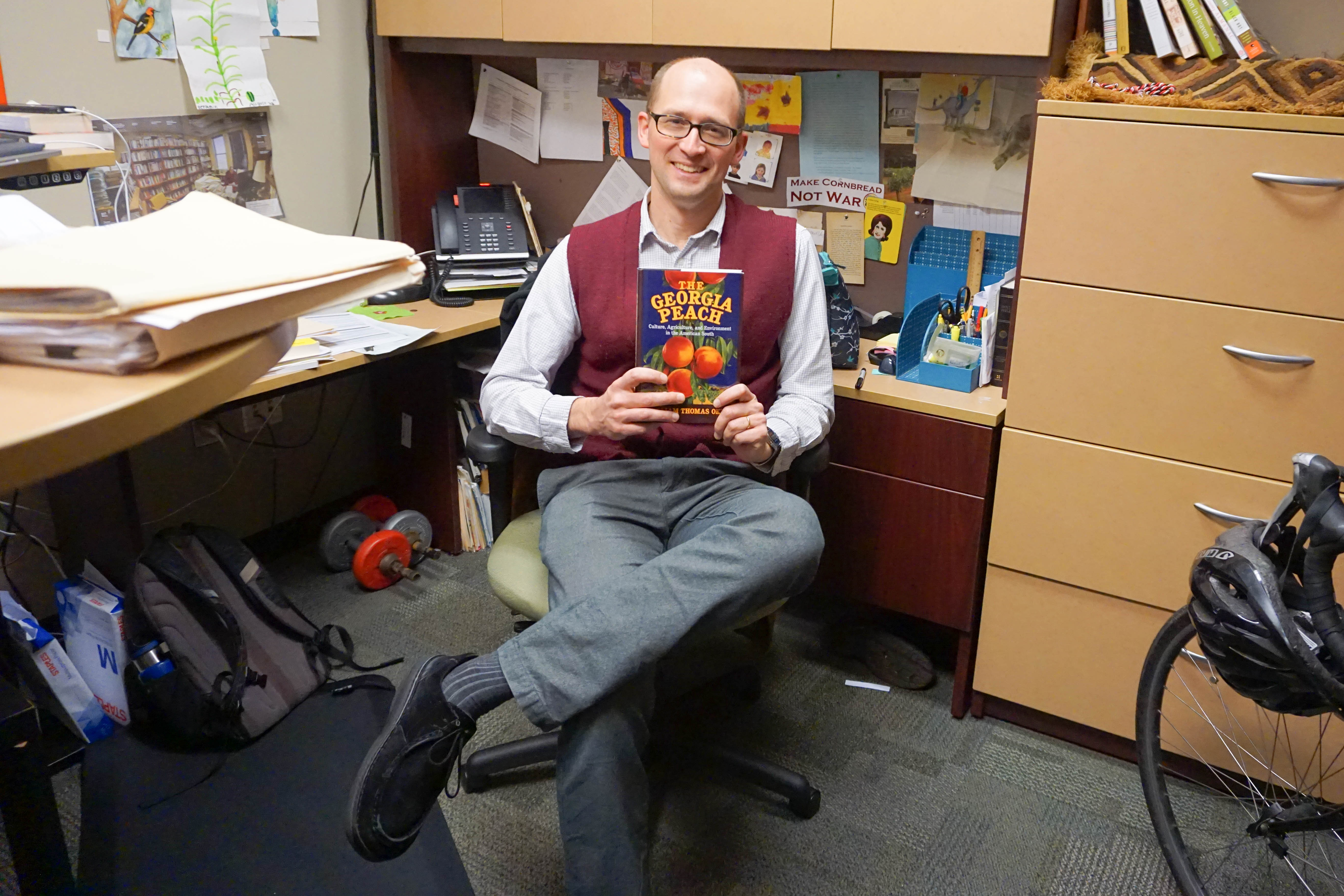What started out as one Kennesaw State professor’s graduate school dissertation quickly became a decade-long exploration into Georgia’s most evasive edible icon, the peach.
When Dr. Tom Okie was awarded the Georgia Historical Society’s highest publication award for his dissertation-turned-book, “The Georgia Peach: Culture, Agriculture, and Environment in the American South,” he said he was filled with excitement and gratitude.
“The Georgia Peach” is an exploration into the peach fruit and how it grew to become a cultural symbol of life in Georgia. Considering Okie’s father was a peach breeder for the U.S. Department of Agriculture, it seems fitting that this iconic fruit would later become the subject of his first book. Having been raised in a world surrounded by peaches, Okie was surprised to find out that so little had been written about them.
“For a crop with such a large cultural footprint, this was a glaring omission,” Okie said.
As a result, peaches were the first thing that came to mind when it came time to decide on a topic for his dissertation.
A tremendous amount of research went into the project before Okie could even begin to formulate the book’s narrative. He gathered personal papers found in various archives, researched periodicals and gathered oral histories from interviews with peach farmers.
Okie said that what struck him the most throughout the research process was the role aesthetics play in shaping the things people talk about and how people talk about them. Many of the passages that Okie references in his book speak about peaches in a surreal and beautiful way. It is this connection between history and beauty that quickly became an inspiring force for Okie as he continued to work on the project.
For Okie, the process of researching and writing took nine years from start to finish, and because of this, the book is scattered with pieces of him throughout.
“Every book is a kind of snapshot of a process,” Okie said.
However, this wasn’t always the case. When Kate Brown, a professor of history at the University of Maryland-Baltimore County, read a part of Okie’s manuscript and felt he was hiding something, Okie realized that his personal stories were an integral means of illustrating the importance of an otherwise overlooked fruit.
While he was reluctant to reveal his own past with peach production early in the writing process, Okie eventually accepted that the book would ultimately be shaped by his experiences, whether or not he overtly included them in the text.
While the book is complete with anecdotes from Okie’s childhood, it was also greatly influenced by his career as a professor of history. Okie is currently in his sixth year of teaching at KSU and his seventh year of teaching college full-time. He considers the book to be an outworking of becoming a historian and refers to “The Georgia Peach” as his “academic calling card.”
As for the future, Okie has already begun to work on a new historical book which will weave together the connections between southern history and native plants. Still, Georgia peaches, in all their symbolism, lessons and cultural significance, will always be something special to Okie.
“[‘The Georgia Peach’] pays homage to the fact that we depend on the earth for our survival and also for the things that are maybe beyond our survival, like beauty and joy and pleasure,” Okie said.


